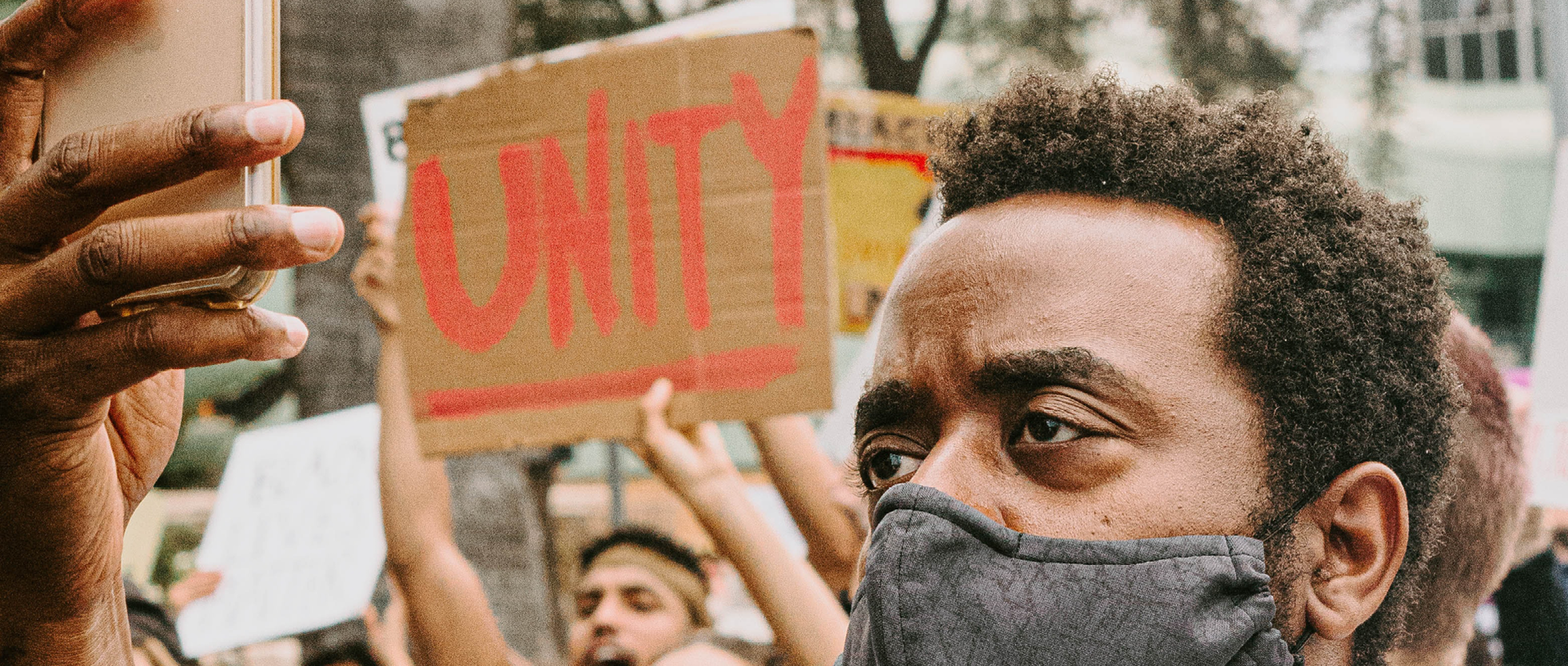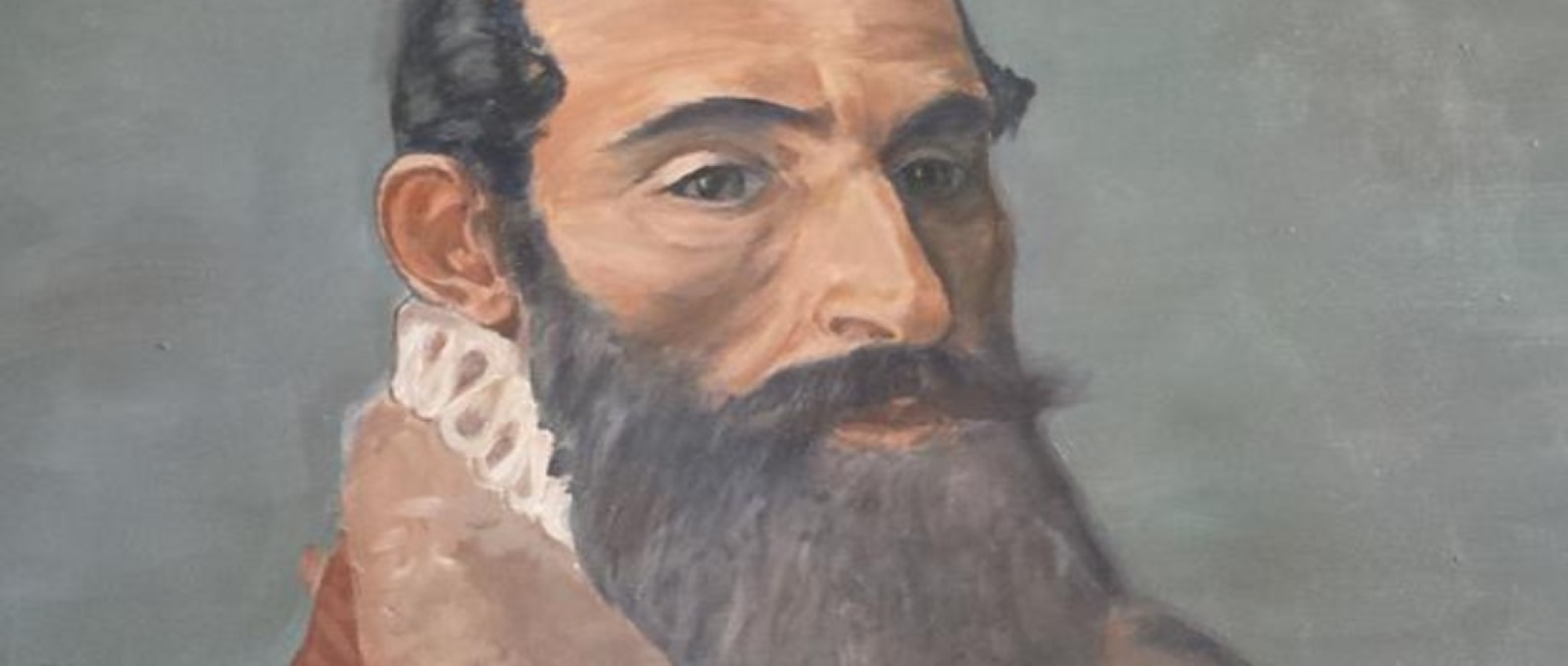Dr. Raúl Álvarez Moreno, Associate Professor of Spanish, explores why the humanities are essential for strengthening our response to crises, and why reducing access to a humanities education can threaten healthy critical thinking, humanistic debate and, ultimately, democracy.


“Most of our problems are not only technological or even economic; they are human problems. That is why the humanities are not only important, but indispensable.”
The response of science and technology to Covid-19 has been fast and remarkable, but the human response has not been so great. This reminds us that human crises, and economic crises, do not just exist in the abstract, in figures or algorithms, but in human beings. This is why the humanities are essential if we want to strengthen our response to crisis.
For many (imbued with neoliberal materialist ideas), the humanities are impractical. Degrees in art, history or philosophy are viewed as expensive luxuries in today’s world. For them, we should move to teaching specific, technical skills that lead to profitable jobs, without too much time to think.
This urge to eliminate the so-called “gratuitous” and “unnecessary” is less naïve than it seems. By killing the time for the superfluous, you end up killing the capacity for critical thinking and genuine political opposition (which can thus become more easily reduced to violent reactions that are, in a way, easier to control or repress than genuine political opposition). The humanities offer digressions from ever changing orthodoxy and propaganda, therefore they are inherently uncomfortable, because they make evident the idea that freedom is indeed a fragile thing and not only an abstract concept attached to a group.
My biggest fear, however, is that a skill-based education without the humanities will not adequately instill critical thinking, which can ultimately threaten democracy.


Reducing polarization through humanistic debate
“We seem to have forgotten the individual humanity of the people we disagree with, only seeing them as mere representatives of a system that needs to be eradicated.”
Social media has made people live in an increasingly balkanized virtual reality. Based on what we watch, read, and consume, individuals within groups (i.e. people with the same political ideology) grow more and more isolated and polarized from those with contrasting views, almost like living in completely different universes. Paradoxically, the more connected we are, the less common ground we share, and this has already proven to be very dangerous.
The main commitment of the humanities should be to foster humanistic critical thinking that leads to bold reasoning and healthy conflict. The humanities are not to police cultural issues but to debate them, to provide critical and free thinking. Otherwise, sanitation of thinking leads to sterility and lack of creativity. Unfortunately, this kind of critical thinking provided by humanities—one that genuinely challenges your views on reality—makes it dangerous to ideologies from both the right and the left, and it is the main reason why the humanities are under concerted attack from both sides.
Debate and healthy disagreement are key elements in the process of critical thinking.
This is why I have included debate more often in my courses. The mindset of presenting different opinions in order to establish cooperation, constructive speech, and common ground was an important part of the studia humanitatis, and it was even systematized in literary forms, such as the Renaissance dialogue.
A good example of this is the conversation between don Quixote and the Knight of the Green Cloak in the novel Don Quixote by Miguel de Cervantes. Cervantes teaches us that sometimes it is neither a bacía (barber’s basin) or a yelmo (armor’s helmet), but both which can coalesce into a baciyelmo. In other words: synthesis is welcome, the irreconcilable can be reconciled, and the deadlock in which we find ourselves can be overcome.
This exercise makes us more flexible: it helps us adapt and learn new things later in life (i.e. update skills, ways of studying and thinking, etc.), and it makes us more eager to accept other people’s opinions and ways of life.
We are at a point where we seem to have forgotten the individual humanity of the people we disagree with, only seeing them as a part of a group or category, or as mere representatives of a system that needs to be eradicated. Real debate, as an exploratory exercise to find common ground, is the key to re-humanizing our opponents and surviving as a civilization, because we cannot continue like this.
Humanistic debate can help bridge the isolation resulting from polarization in two ways:
- By showing how different versions of things, reality, and opinions can come together, serve one good purpose, and enrich one’s life in meaningful ways. For example, students often get surprised when we study how, in Medieval Spain, the possibility of being two things at the same time existed, and how embracing contrasting ideas (consequentia oppositorum) led to a less rigid concept of subjectivity.
- By alienating students from the predominant ideological order, seeding doubts and agitating consciences, which is the Socratic way pointed out by the French intellectual Alain Badiou. Innovative thoughts and controversial ideas need to be tested in debate. This is a good way for our students to try new things, spread their wings, and learn more about themselves without being patronized or treated as an extractable resource.
In addition to providing “soft skills” such as emotional intelligence, leadership, teamwork, or the ability to present information, the humanities can also aid in researching how technologies interact with human beings to make us better, rather than just vehicles to sell us things.


Book cover image of La Peste by Albert Camus (2020 Edition by Mercy House Publishing, designed by Edward Hum).
The power of storytelling
“Stories are the best way to learn about our emotions and their dynamics, which greatly impacts the way we live and deal with crises.”
The pandemic has accentuated a craving for connection, which apps and social media cannot fully deliver. On the other hand, the humanities can deliver connection through dialogue with books, for instance, or by learning a new language and culture.
The humanities expose young people to tragedy, pain, and death in a deep and enriching way—realities that our society systematically tries to hide, sanitize, or be overly exhibitionistic about. In the last few months, I have read some pandemic-related readings (e.g. La Peste by Albert Camus), but I was particularly impressed by Antonio Di Benedetto’s Zama, a Latin American novel which masterfully exposes how loneliness and lack of genuine human contact can degrade human beings.
We live by telling “ourselves” to each other. Stories are the best way to learn about our emotions and their dynamics—without being used to sell things to us—which greatly impacts the way we live and deal with crises. It has been proven that those engaged with the humanities tend to be more empathetic. And the more volatile things become, the more we will need real community, some kind of agreement about truth, and optimism for the future.


Resisting the Dictatorship of Profit
“Humanizing learning with critical thinking and debate is not an act of regressive nostalgia, but an exercise of radical melancholy and resistance against the Dictatorship of the Profit.”
In addition to universities starting to defund the humanities, places like the UK have raised the tuition for people who want to study the humanities, as if it is a luxury reserved for the privileged and well-off people. Working- and middle-class students who cannot afford to study the humanities are therefore subjected to learn basic skills in order to obtain a job as quickly as possible after graduation.
Another way of neutralizing the humanities is by restructuring them to fit the obsession with measurable results. The digital humanities are great, but the time saved by scaling projects should be used to think, discuss, and freely debate the texts and data, instead of only accumulating data for the purposes of selling.
Some degrees by themselves may help our students to secure entry-level jobs, but less to advance in their careers. At the end of the day, skills can be learned and updated quickly (the transition to remote teaching and learning in record time is proof), but passion and curiosity, and the capacities described above, cannot be improvised. Students should come to university primarily to learn how to think and reason independently. I believe the first duty of professors is to convey passion and love for knowledge and discovery, and only secondly to provide students with a set of skills and eventually a grade.
This claim of renewal of the old Liberal Arts model with modern and local aspects by humanizing learning with critical thinking and debate is not an act of regressive nostalgia, but an exercise of radical melancholy and resistance against what the Italian professor Nuccio Ordine calls the “dictatorship of the profit”, and the attempt to tame real progressive ideas with the urgency of breaking news, or pre-conceived theoretical models.


Francisco López de Villalobos
A false split between science & art
“Technology alone is not enough—it’s technology married with liberal arts, married with the humanities, that yields the result that makes our hearts sing.”
I do not easily accept the split between science/technology and the arts/humanities. I believe they are disciplines that are, and should be, connected.
In Western civilization, the humanities and arts have always gone hand-in-hand with the sciences and their application. For example, music was part of mathematics, and the best doctors in Spain, from the Middle Ages to modernity (such as Francisco López de Villalobos), were also great humanists, writers, artists, and even translators.
The divorce between science and the humanities—a mistake that, in my opinion, has led to the current pessimism in the West—is a relatively recent phenomenon associated with overspecialization, the reduction of basic science to commercial applied technology, and contempt for everything that is not measurable or quick to produce a “tangible” benefit.
I am not a big fan of Steve Jobs (or Big Tech in general), but he once said something that makes perfect sense within the above-mentioned tradition (if we do not read it as a service to corporate efficiency and productivity, that is): “It’s in Apple’s DNA that technology alone is not enough—that it’s technology married with liberal arts, married with the humanities, that yields us the result that makes our hearts sing.”
A call for interdisciplinary studies
I would like to use this opportunity to encourage UBC to create new specializations bridging and combining the Sciences and the Humanities, plus Coding and Math (i.e. Statistics), in order to build a more distinct identity as an institution on the world stage. I think we should create a renewed and interdisciplinary combination of Humanities, including First Nations’ knowledge, as well as basic Science, Engineering and Math.
In truth, looking at problems collaboratively from different perspectives—not only the ones marked by scientific and technical methodology, but in association with the humanities—is how creativity has the best chance to emerge. Literature, Philosophy, History and other humanistic disciplines are essential to understanding and offering perspectives on how societies and individuals work.
Most of our problems are not only technological, technical, or even economic; they are human problems. That is why the humanities are not only important, but indispensable.


